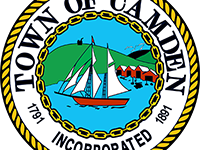Post-traumatic stress disorder can affect anyone, not just veterans
When I established Gift From Within in 1993 many people asked me what PTSD is and why it needs a support organization.
My response: I help people learn about posttraumatic stress disorder and I help family members understand it. Today people are familiar with the term, even if they do not fully understand what it means to be a trauma survivor. Most people realize now that PTSD is not just the result of war and combat, but can be caused by many other traumatic situations in everyday life.
What's the difference between PTSD and a normal reaction to traumatic experiences?
It all has to do with memory formation. We all have autobiographical memories of traumatic events — loved ones that have died, natural disasters, car accidents, bullying at school or work and other terrible things and they made us feel humiliated and abused or grief-stricken. We remember these events and they hurt us terribly. We manage to go on after a while, maybe with difficulty but our lives seem to continue and the memory fades. Those events have gone into our autobiographical memories, and the past feels like the past. It was an awful event but we were not overwhelmed and the details do not jump out at us causing palpitations, nightmares, flashbacks, terror, and we are not feeling a lot of physical pain or discomfort.
The memories of those who suffer from PTSD are of a different kind.
They react differently to a traumatic experience. Instead of the memory gradually fading, it remains fresh and intense. It doesn't go away. PTSD sufferers cannot sleep well. Their appetites suffer. They cannot stop remembering what has happened to them. They have vivid and unexpected flashbacks. For these people, the event is not in the past. It is in the present. Many doctors feel these trauma memories are the core feature of PTSD. The memories haunt you. Without this unwanted re-experiencing a person does not have PTSD.
PTSD sufferers need help to overcome the impact of their memories. And that help begins with validation, with recognitionthat the survivor's coping mechanisms simply cannot handle the trauma, that they have a medically diagnosable condition: PTSD. Victims of abuse, assault, crime and violence who have PTSD often feel shame, self-blame and rejection. Our philosophy is to respect those who have survived catastrophic stress and to help them help themselves and others.
For a full definition of PTSD please go see this link on our website.It is a page of questions I have received over the last 20 years from survivors. Our Founder, Dr. Frank Ochberg, an expert in PTSD since the l960’s will help you understand PTSD much better than I can in this column. Dr. Ochberg was part of the team that coined the term Post-traumatic Stress Disorder. He edited the first treatment text on PTSD.
Q&A Page on Gift From Within
If you want to know more about PTSD, I suggest you read Trauma & Recovery, by Dr. Judith Herman. Our site now has more than 400 pages of information and educational resources. We do not offer treatment or therapies; instead, we offer friendly and supportive materials. If you or a family member has been diagnosed with PTSD, we believe our offerings can be helpful. We also have a Facebook page which offers helpful resources we've found elsewhere on the Internet.
Read the stories of trauma survivors, people who are dealing with PTSD on a daily basis. We also offer educational materials for veterans and their families, as well as for survivors of human cruelty. And, since helping someone with PTSD can take a toll on the spouse, mother, father or friend, we also offer materials for professional helpers and caregivers, who often need support as well.
For those who are interested, many other resources are available. NAMI Maine has an excellent website. http://www.namimaine.org/ And we have the Depression and BiPolar Support Group that hold weekly meetings in Rockland. For more information please contact dbsamc@hotmail.com.
Joyce Boaz lives in Camden
Event Date
Address
United States






















